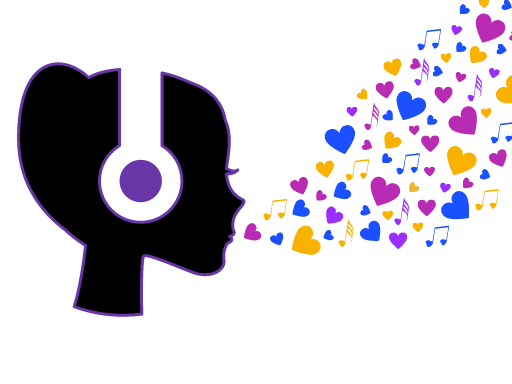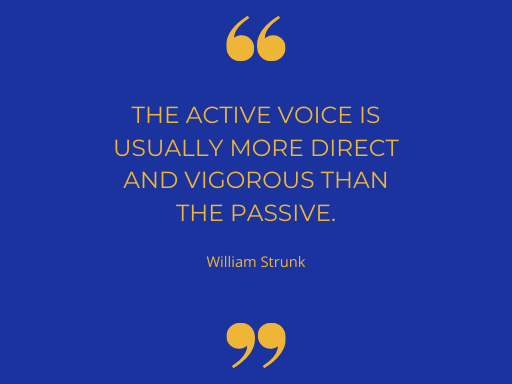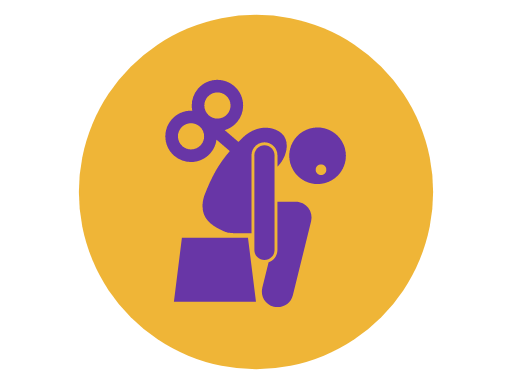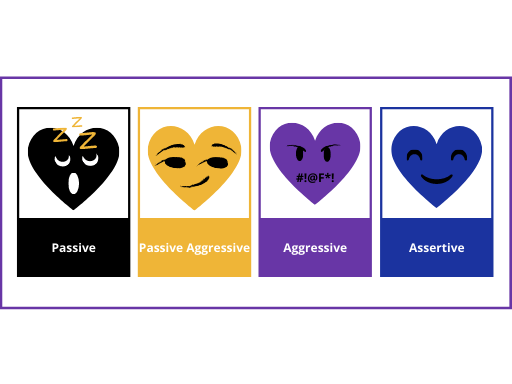Everyone has their very own unique voice. Just like fingerprints, your voice is your signature identifier. However, what we all have in common with our unique voices is our tone. And, what exactly is tone, you ask? Well, tone is something we all have, and we can all express tones that are recognizable in just about every country. Let’s explore that a little.
Tone Speaks Volumes
Like it or not, our tone speaks volumes when it comes to our attitude. Tone is the way we sound when using our words. While the words we choose can easily be spoken, it’s the tone that sets the intention of the speaker’s message. It’s the tone that transforms your statements into being serious, funny, disrespectful, uninterested or any other inflection of emotion.
A tone from someone who is agitated or angry would be expressed the same way as someone who is agitated or angry on the other side of the planet, just in a different culture and using a different language. And yet, it’s still the same tone. Even animals can sense this!
Have you ever noticed that regardless of what language you’re using, the tone you use towards a dog can sway the animal’s reaction and behavior towards you? I know when I have a heated discussion with a telemarketer my little dog hides under the coffee table every time. He certainly knows my tone when I’m upset. So, whether Ralph Kramden or Ricky Ricardo is expressing their anger to the poor pooch that had an accident on the living room rug, that dog knows just by the tone of voice who’s mad at them.
If you’ve ever heard the response, and I’m sure you have, “I don’t like your tone,” it directly correlates with the other saying, “It’s not what you say, but how you say it.” And, this is as apparent as the air we breathe. It comes to us so naturally and without us even realizing that we’re doing it.
Words are extremely powerful. And, your words have great meaning. But it’s the way you use your tone with your voice, the delivery of your words, and your intention that sets how the message is perceived. Consider what it really takes to tell a joke to someone. Both you and I can tell the same joke to the same person. However, if my delivery and intention aren’t right the joke flops. But when you deliver the joke as intended to that same person you get all the laughs. The joke just isn’t funny if it isn’t told with the right tone, intention, and delivery.
You’ll notice that as you stress certain words your tone will shift. I know mine does when I’m trying to get a certain point across. And, when I say stress, what I really referring to here is the way you say a particular word. As in how you emphasize your words. Let’s provide an example of this by saying a simple sentence aloud and each time stressing a different word in that sentence. By doing this exercise you will hear that this makes the sentence sound quite differently each time.
Let’s start with a super easy sentence. Let’s use the sentence “She gave my lunch away.”
Recite Aloud:
- SHE gave my lunch away.
- She GAVE my lunch away.
- She gave MY lunch away.
- She gave my LUNCH away.
- She gave my lunch AWAY.
Did you notice how each sentence sounded a bit different? Each time emphasis was made on a particular word it changed the tone in your voice and in doing so it made each sentence have a slightly different meaning or intention behind it. Tone is what sets our words into place.
Attitudes & Feelings
Our attitudes and feelings are the driving force behind our tone in the words that we use. So, check your attitude as you’re speaking to ensure you’re truly communicating what it is you want to say. Because if your attitude doesn’t line up with your message what you’re trying to say won’t come out as you had intended.
So, try to put aside all the thoughts and concerns you might have rolling around in your head and lose the ‘tude when addressing the dude.
Tones for 4 types of Communication Styles
As we’ve covered that certain types of tones can change the way verbal messages are received, let’s talk about the four communication styles and how they relate to your tone. When it comes to communication these styles can literally be heard over the phone. Since we aren’t able to use our body language, facial expressions, or anything visual, it’s our tone that is going to set the mood and leave that lasting impression with callers.
The Passive Communicator, AKA The “Non-Authoritative” Type
I don’t know about you, but when I call around to inquire about something, let’s say for research on products or services, and I reach someone on the phone that sounds unsure, unknowledgeable, or uncaring, I’m pretty put off. If it’s a receptionist I’m speaking to and their tone lacks an authoritative voice I will actually associate this person with the ENTIRE company as the receptionist is the frontline person.
Now, either one of two things will happen here. Either I will quickly get off the phone as I have now perceived that this company is quite basic or I’m just going to rush over this person and try to get connected with someone that is confident and motivated at this company. Either way, I’m not impressed with my “first impression” and I certainly don’t want to hold a conversation with this person any longer than I already have.
I want to call someone having good faith that I’m going to get my questions answered, be guided in the right direction, and maybe even be pleasantly surprised by that rare “WOW factor” of an amazing customer experience. The tone of a positive, assertive speaker is simply music to my ears.
A passive tone is NOT going to win my business nor loyalty compared to speaking with someone who has an assertive and friendly tone.
Now you might be wondering by now, what does a passive communicator sound like? And, that’s a great question to be asking!
Here’s what a passive phone voice sounds like:
- Soft, hard to hear, and seems far away (like they’re scared to be on the phone)
- They don’t say a lot and/or don’t give enough information
- Seems nice but overall, very meek
And, here’s an example of how a conversation with a passive communicator sounds like over the phone, given the above traits listed.
-
- Passive Receptionist: *in a small, weak, crackly voice Thank you for calling…Wonderful uhm, Window Coverings…
- Caller: Hello, I’m finally doing a window project for my house and calling around. What kind of shutters do you carry?
- Passive Receptionist: Um, ok…hmm. I… don’t…Like the ones that open and close for your house windows…?
Yeah, no. My confidence in this person, and this company, has just dropped. Key sounds in her tone that told me she wasn’t confident in her knowledge or role as the person answering and delegating calls were sounds like “Uhmmm”. Uhmmm tells me that you have to think about that answer. The fact that the answer to the caller’s question doesn’t come to the receptionist’s mind immediately or that this receptionist (not knowing the answer) didn’t simply just reply with “You know what?, I don’t have that information in front of me but let me get you over to the person that does have that information for you” is a HUGE warning sign that this person doesn’t really know or even understand what it is that they are doing over the phone for this company. And, now the caller is left wondering, “Should I just avoid a potential disaster and call the next company?” The excitement bubble has been popped and the impression of this business isn’t one that is going to be remembered. At least, for anything good, anyway.
The Aggressive Communicator, AKA “The Barking” Type
Same with the passive tone, I also steer clear of the person who is barking into the phone. I want to hear a tone from someone who is calm and cool not confrontational! Hearing an aggressive tone is going to make me either back off and hang up or it’s going to make my defenses rise up since I’m feeling almost verbally attacked and I’m trying to brace myself.
And while I am associating this person on the other line with the company as a whole, I am now thinking this business is being run by people who won’t be patient with me. If the speaker has a negative tone, even though they may not be yelling, the tone can still feel loud and invasive. To say the least, I am either not comfortable talking with this person or I’m just going to move down the research line.
Since you know what a passive communicator sounds like can you guess what an aggressive communicator might sound like?
I’m sure you can but just to be clear, here is what the aggressive phone voice sounds like:
- Loud, harsh tone of voice (maybe even a little too close to the microphone)
- They don’t let you say as much as you want, or they talk over you
- They are condescending or treat you like you are dumb
And, here’s a good example as to how a conversation with an aggressive communicator might go.
-
- Aggressive Receptionist: (in a loud, fast, grumbled voice) Wonderful-Window-Coverings!
- Caller: Hello, I’m finally doing a window proj–
- Aggressive Receptionist: OK yeah?
- Caller: …for my house and calling arou–
- Aggressive Receptionist: Yeah, so!
- Caller: Well, what kind of shutters do you carry?
- Aggressive Receptionist: What do you mean what kind?! We have ALL kinds! We carry them all, get down here and look for yourself!
- Caller: …
Not the ideal phone call to have when I’m dutifully conducting research for my well-awaited project. Not only has my bubble been popped but it’s also been smashed and torn to pieces.
Any person over the phone that makes me feel small or insignificant must be run by a company where all the employees will treat me this way. If a company makes me think I should either run and hide or stay and defend my shopping rights, then it’s a company that I won’t give my business to.
The Passive-Aggressive Communicator, AKA “The Questionable” Type
Ah, perhaps one of the worse tones to hear. This is the tone where you can become confused because the person speaking isn’t being truthful. However, a passive-aggressive type of tone can sound helpful and cooperative deep down there’s a different thought (and maybe even agenda) behind it.
While this tone will use words that have a positive meaning, this tone over the phone can come off as being sarcastic or mocking. The person behind the tone is also secretly angry or annoyed (whether that be with me, their job, or something else).
Trying to imagine what a person like this must sound like is an interesting thing to consider since passive-aggressiveness sounds one way but means another. So, here is what the passive-aggressive phone voice sounds like:
- Mutters under their breath – as if they’re trying to get something off their chest, but doesn’t want you to hear the whole thing
- Says sarcastic remarks
- Seems cooperative yet with a hint of rudeness
Let’s take a look at a conversation that a passive-aggressive communicator might have.
-
- Passive-Aggressive Receptionist: (in a bored, eye-rolling type of tone and sighs while saying) Wonderful Window Coverings.
- Caller: Hello, I’m finally doing a window project for my house and calling around What kind of shutters do you carry?
- Passive-Aggressive Receptionist: OK. Good for you. We have the kinds that… open and close.
- Caller: Um, right. I was looking for the interior kind. I’m on a budget so I’m thinking the fake type of wood.
- Passive-Aggressive Receptionist: Oh! You want faux wood??? Like faux reals???
- Caller: Yes, (Internal monologue: Is this person mocking me?)…
I don’t know about you, but for me during an encounter where I’m questioning another person’s intent makes me NOT trust them. If I sense from their tone that they are mocking me or making me feel inferior, insulting me in any way – well, I’m out of there. In this case, I’m just hanging up.
I’m going on a limb here and saying that most people want to feel helped. Taking it a step even better than help, I want to feel good about getting information, feel respected, and maybe even happier and optimistic once I get off the phone. That would be really nice.
Now, this brings me to our fourth type. The only type you want to sound like.
The Assertive Communicator, AKA “The Take Charge” Type
What we are really looking for here is a communicator that can plant their feet firmly, hold their head high, and speak from a place of confidence. This communicator is clear, concise, and caring. Their tone rolls out a welcome mat that extends all the way to the competition’s front door. Let’s hear what that type sounds like.
-
- Assertive Receptionist: *in a clear, confident, yet friendly voice, Thank you for calling Wonderful Window Coverings, how may I assist you?
- Caller: Hello, I’m finally doing a window project for my house and calling around What kind of shutters do you carry?
- Assertive Receptionist: Oh, that’s great! Good for you. We have lots of types for you! Were you thinking interior or exterior?
- Caller: Interior. And, I’m on a budget.
- Assertive Receptionist: Oh, I totally understand! I think faux wood is a great choice then. Would you like to schedule a look-see with our amazing windows expert?
- Caller: YES!
Wow, what a difference in my impression of this receptionist (and the ENTIRE company) all because of their professional and smiling tone. It was straightforward, filled with positive vibes, and it sounds like they know what they’re talking about. And I’m eager to work with them. This phone call has me excited, and I am no longer calling anyone else.
Tips to Change Your Tone to Sound More Professional
If you are looking to elevate your tone, try out these great tips. While everyone is different in how we communicate the end goal is the same and that’s to sound professional and friendly through our tone of voice. A confident and friendly tone over the phone is critical when trying to create trust.
So, here it is:
- Have a professional tone
- Smile
- Be genuine
- Say the right things
- Take the initiative
Yes! This is the simple one (as it’s easier said than done), yet a tough one for some people. You actually want to have an improved professional tone. It’s one of those things you need to admit, accept, and act on. Just like any situation where you want a different outcome, it means you must try something different. This means you must come to terms with it and take those crucial first steps to get the momentum rolling. Once your mind is in the clear and geared for success it’ll make the other steps much smoother to tackle.
Now, let’s say it’s your job and it’s a requirement to sound professional and friendly. All the same, you must take the first steps in wanting to improve your tone for the sake of your callers and the experience you’re putting them through. And when it comes down to it, if you want to continue your employment it’s a must. Initiation leads to action.
Either way, stepping up to sound delightful on the phone will have some benefits all around. It’s a win-win.
The Smile
Ahh. The smile. Any smile. Smiling is the universal language that means happiness. Friendliness. Positivity and encouragement. A smile makes you feel invited. A smile all by itself needs no words to understand what a smile means. A smile is identifiable across the globe.
Can you believe smiling actually changes your tone? Seriously! Try it. You can even use the “She gave my lunch away” sentence inflection exercise we did earlier. You’ll clearly hear your smile through your tone. You actually have to try hard to NOT sound like you’re smiling when really you are. That’s how powerful your smile can be. A person over the phone has no vision of you and yet can hear that you’re smiling on the other end of the line. Pretty powerful stuff.
Smiling will automatically change your tone and allow your voice to sound warm and welcoming, friendly and inviting. All things that are important when it comes to the Abby Way. Having a professional and friendly tone is not optional. It is a commitment and is essential to how we CATER over the phone.
What if you’re not normally a person who smiles? No problem. Will it take some extra work? Yes, but it’ll be well worth it. And it doesn’t take much either. If you have a desk or walls, perfect. You’ve got a blank canvas to create in visually helping yourself out on your venture to smiling.
Get a mirror and place it wherever you take phone calls so you can plainly check your twinkling grin. If you have a mirror easily accessible while taking calls, you’ll be able to change your tone in an instant and your callers will indeed hear you smiling.
Have pictures of people, events, things you love and want, and things you hope to do one day plastered all-around your workspace. If your environment is surrounded by your “happy place” it’ll make it a whole lot easier to smile since you are constantly reminded of the things that make you feel good and appreciated.
Be Genuine
A big and equally imperative part of having a professional and friendly tone over the phone is that you care. You really care for what the person is saying. As you are actively listening to your caller, try to tap into the empathetic part of your mind to help you with those genuine responses.
When you are chatting with someone about things that may seem mundane or insignificant to you, remember that it is important to the person who is speaking. Being able to understand and share the emotions your caller is feeling will help you to say genuine statements.
When you’re happy for someone who has finally reached their financial goal, who can now spend a few thousands of dollars on shutters for their first home, you’ll find that you’ll be able to genuinely help them. And they’ll hear it in your voice and tone. Especially if you’re smiling! (Tip #2).
When you are genuine with what you are saying you will leave your callers with a better impression of either themselves, their situation, or with you.
Say the Right Thing
Oh, what to say. I know, we’ve all been there. Sometimes you just don’t know what to say. It wasn’t because you weren’t listening, and it wasn’t because you didn’t care. You just didn’t have the words to express what you were thinking about or feeling at that moment. So, you say nothing! Rest assured, you can start saying the right things.
It takes a bit of intent and a lot of practice, wanting to say the right things and consistently just trying to say the right things. If it sounds a little off, you can correct yourself as you continue to speak. The act of practicing, in general, will show improvement in just about anything. After all, the more you practice anything the closer your come to mastering it.
Instead of thinking “What would this person want to hear?” think more along the lines of “What would I want to hear?”
Chances are if it’s something you’d want to hear, then it’s probably a good start. Some good guidelines to keep in mind:
- Stay on the positive side; Don’t be negative
- Be encouraging, not deflating
- Be a problem solver, not a problem spotter
Whether you’re trying to improve your professional phone voice for personal development or due to professional reasons, remember that at the end of the day you are representing yourself and the company you work for. When professionalism is at the forefront of your responses then saying the right things will come to you a little bit filtered. And this is a good thing. When speaking with others in a professional or serious setting stay on the cordial side of things.
On the opposite side of this let’s say it’s you who is the caller, how would you want a friendly and professional person addressing you? For myself, an expert in their field that is warm and inviting will win me over every time as opposed to one who isn’t.
The Power of a Smile
As we addressed earlier, smiling helps improve your tone. Now let’s take a deeper dive into the powers of the smile. Here at Abby Connect, your voice is part of our product. Well, that along with your choice of verbiage and it’s a deal-breaker if your voice is not…well, Abby. For anyone we are training who has a tone that falls flat, our go-to solution is to train the receptionist to smile.
Besides it being a prerequisite to being a valuable receptionist, there are so many other benefits when a person smiles other than the tone change. While tone is number one for being on the phone, smiling is also:
- Pretty much the same in any language, culture, or society (but some do it a little less)
- Contagious
- A mood enhancer
- Attractive
- A stress reliever
- An immune booster
Studies have shown that even a forced or fake smile will still induce these great benefits even if just a little!
Why a “Smiling” Tone is Beneficial
If your career path includes any communication via phone (OR video conferencing), then a smiling tone will greatly enhance a number of things that will prove to be advantageous to you. It will also be favorable and appreciated by the company you work for and of course to your customers.
A smiling tone exudes friendliness as we’ve discussed earlier, and people naturally gravitate towards the easy-going and welcoming. If this is true, then people over the phone will likely want to continue talking to you and, better yet, will want to work with you. Because let’s face it, not many people want to work with someone who is unfriendly or grouchy. Which has us circling back to our friendly, assertive tone examples pointed out earlier.
Good ‘ol Dolly Parton said, “If you see someone without a smile, give them one of yours.” As an incredible performer and person, she has it right. When you see someone who doesn’t have a smile and you give them one of yours, it’s likely going to get them to smile back at you. Hence that smiling is contagious. Now, there are two people who are reaping the benefits of smiling. Doesn’t sound like a bad thing at all.
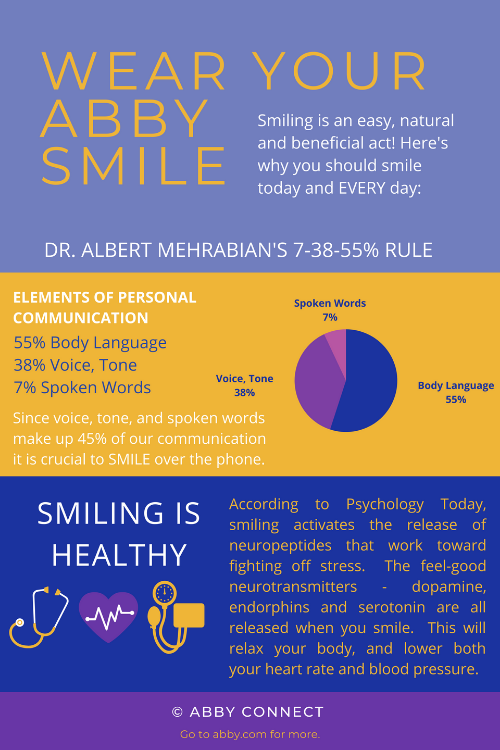
What NOT to Do
While we have addressed all the necessary components to help boost your tone, let’s also quickly address a few things that are a hard NO. Just like the 4 Types of Communication where you can hear and feel the sincerity behind the words, the following has the same effect.
Do not:
- Be fake
- Sound disengaged
- Roll your eyes or sigh
Instead:
- Be authentic
- Put care into your voice
- Be attentive and interested
How this Helps You Move Forward
Having a professional, assertive tone and smiling are all increasingly beneficial all around. While everyone is different and we all have our own ways of doing things, just remember that communication is the best way to get things out in the open, set expectations, get things done, and can create some awesome conversations and experiences.
Create the habit of practicing and your tone will have the compound effect to change the way you address people, and it will lead to a change in how people respond to you. Make this better habit for yourself and you’ll have a better tone.
